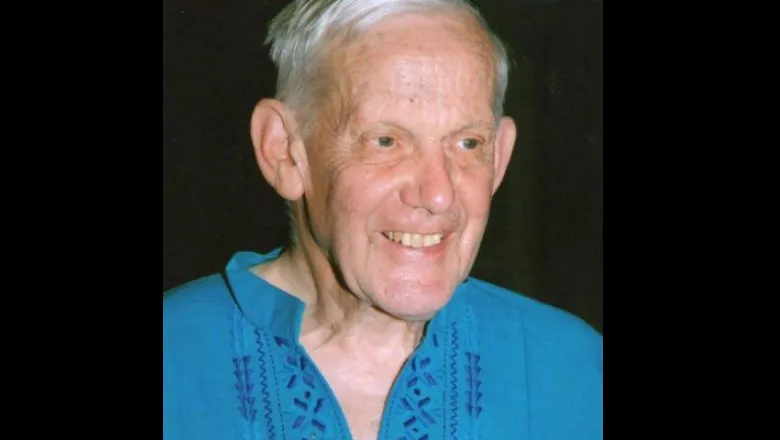28 July 2025
Peter James Marshall FBA CBE (1933–2025)
King’s College London is saddened to learn of the death of Professor Peter J. Marshall, one of our most distinguished historians.

After a DPhil at Oxford, Peter joined the Department of History here at King's as an Assistant Lecturer in 1959, before moving up the academic ranks to Professor in 1978.
In 1980, he became Rhodes Professor of Imperial History, a post he held until 1993, when technically—though not actually—he retired. Indeed, Peter continued to teach in the department well into the twenty-first century. Some will recall the occasion when we marked, in 2009, his fiftieth consecutive year of lecturing at King’s. More remarkably still, perhaps, Peter was President of the Royal Historical Society (1996–2000) in his ‘retirement’, along with undertaking many other public and professional roles and responsibilities. Between 1989 and 1990 he was also a member of the History Working Group for the National Curriculum in England and Wales.
Peter was very well known for his expertise on British imperial history, and the history of British India in particular. Over the course of his long career, he published a series of important books, as well as more than fifty articles and chapters. His major works include Problems of Empire: Britain and India, 1757-1813 (1968), East Indian Fortunes (1976), Bengal: The British Bridgehead (1987), Trade and Conquest: Studies on the Rise of British Dominance in India (1993). This series of books led scholarship transforming the way we think about the early British empire in South Asia, showing how the East India Company was entangled within Indian practices and institutions, rather than being a sudden break. In his later books, The Making and Unmaking of Empires (2007), Remaking the British Atlantic: The United States and the British Empire after American Independence (2012), and Edmund Burke and the British Empire in the West Indies (2019) he extended his focus to include the British Atlantic World. He was still actively writing and researching up to the time of his death: his final book Slave Ownership and Paternalist. Sir William Young (1749-1815) in England and the Caribbean will be published posthumously by Boydell and Brewer.
In addition to this body of scholarship, Peter made major editorial contributions to landmark projects and publications. Aside from a stint as editor of the Journal of Imperial and Commonwealth History (1971–81), he was a member of the editorial committee for the Correspondence of Edmund Burke (1965–78) and editor of volume 5 of The Writings and Speeches of Edmund Burke (1981). He was also editor of the Cambridge Illustrated History of the British Empire (1996) and of one of the volumes—that dealing with the eighteenth century—of the Oxford History of the British Empire (1998). He was also a longstanding member and convenor of the Imperial History Seminar at the Institute of Historical Research.
Peter’s achievements brought him many honours. He was a Fellow of King’s College London, and an Honorary Fellow of Wadham College Oxford and the Institute of Historical Research (IHR). He received honorary doctorates from London University (2008) and the University of Bristol (2008), was elected to the Fellowship of the British Academy in 1992 and, in 2002, was awarded a CBE for services to history. But he was in no way a grand or distant figure. Many will remember his personal kindness, his modesty, his gentle charm and wit. He was especially supportive of younger scholars, generously endowing the Marshall Fellowships jointly awarded by the Royal Historical Society and the IHR. He will be greatly missed.
